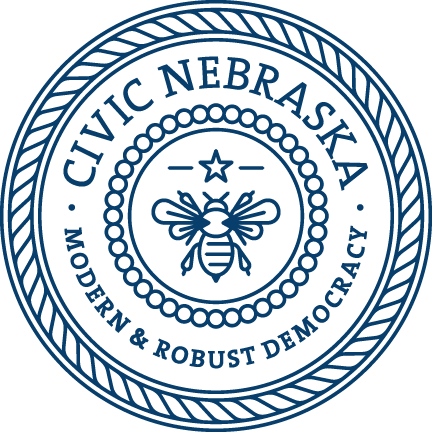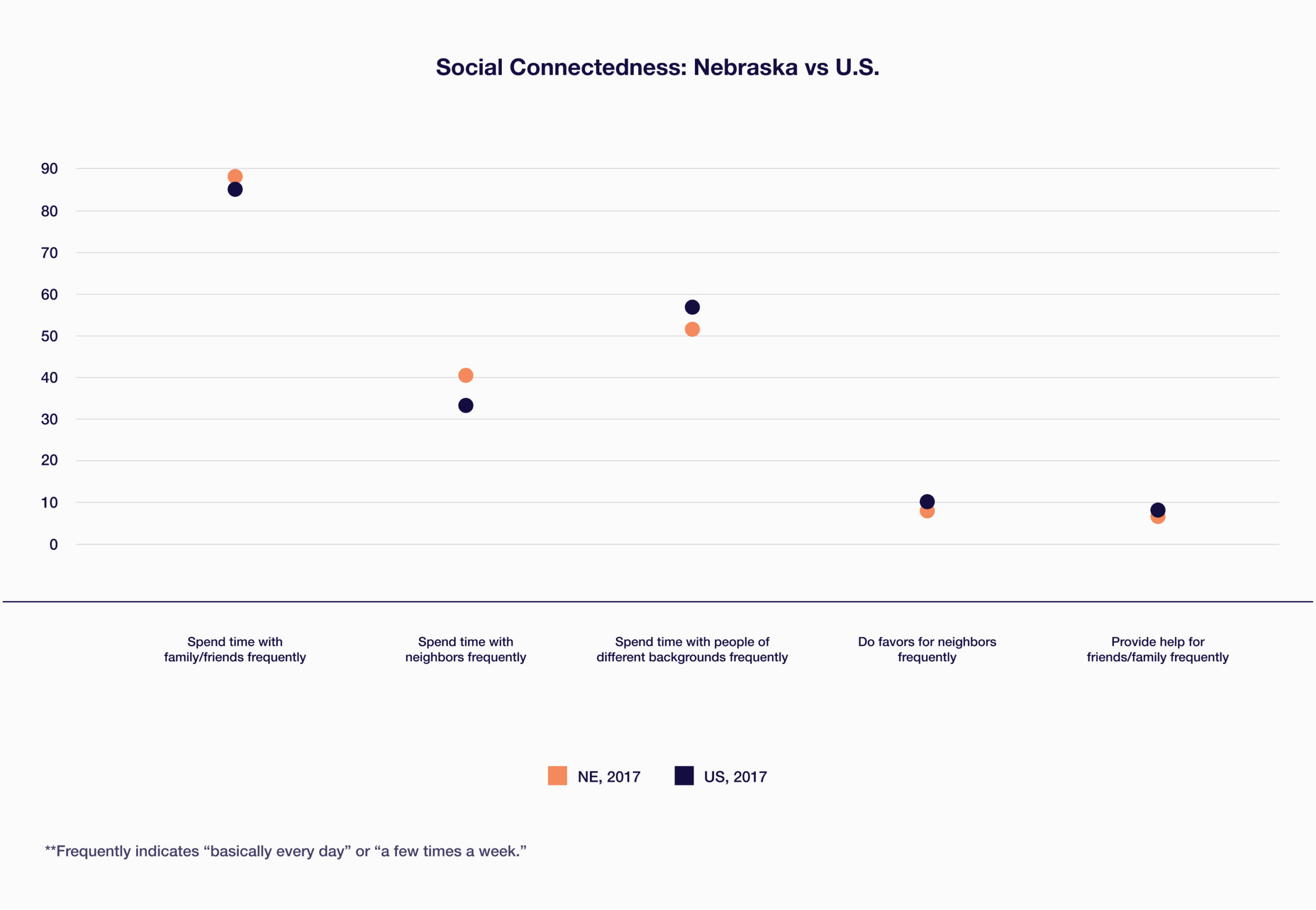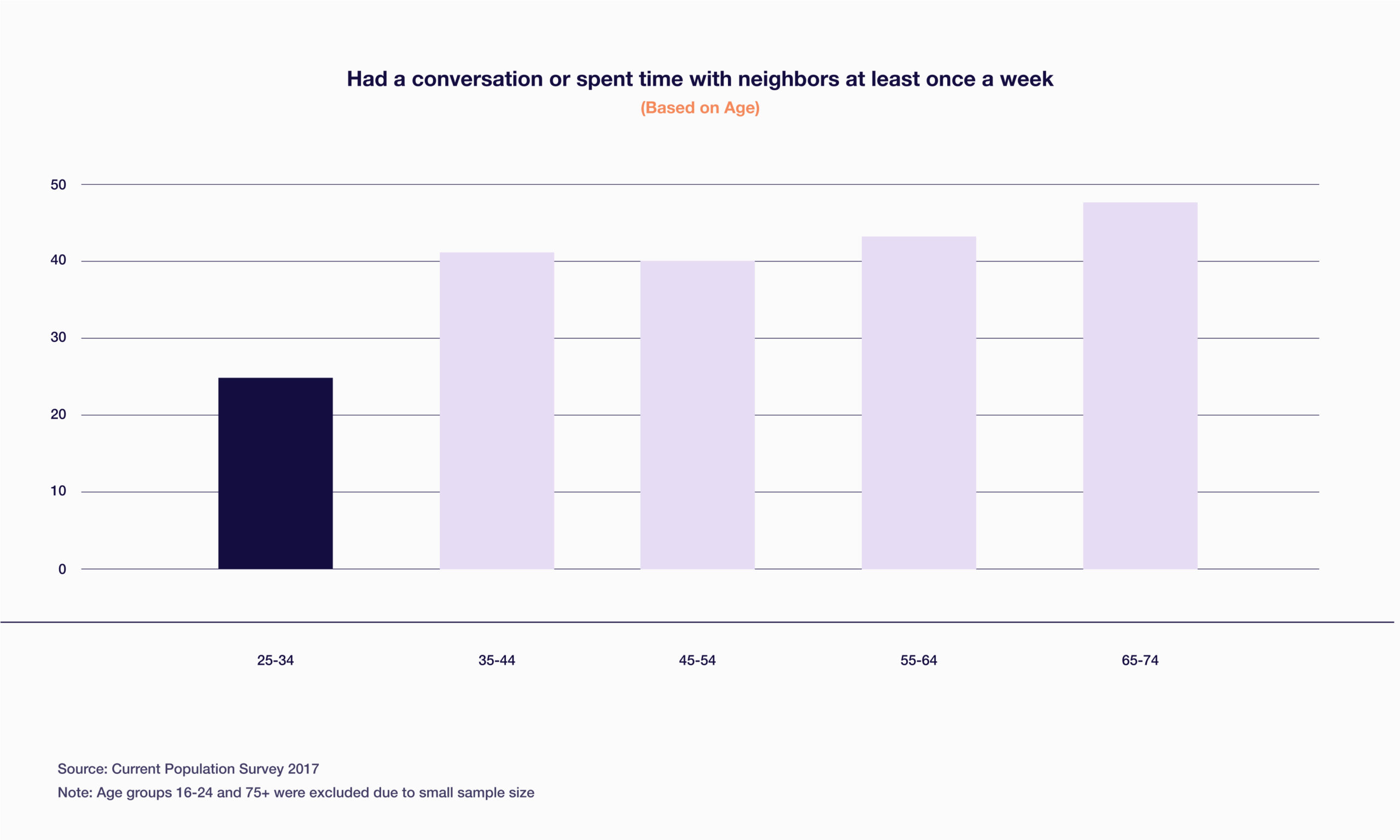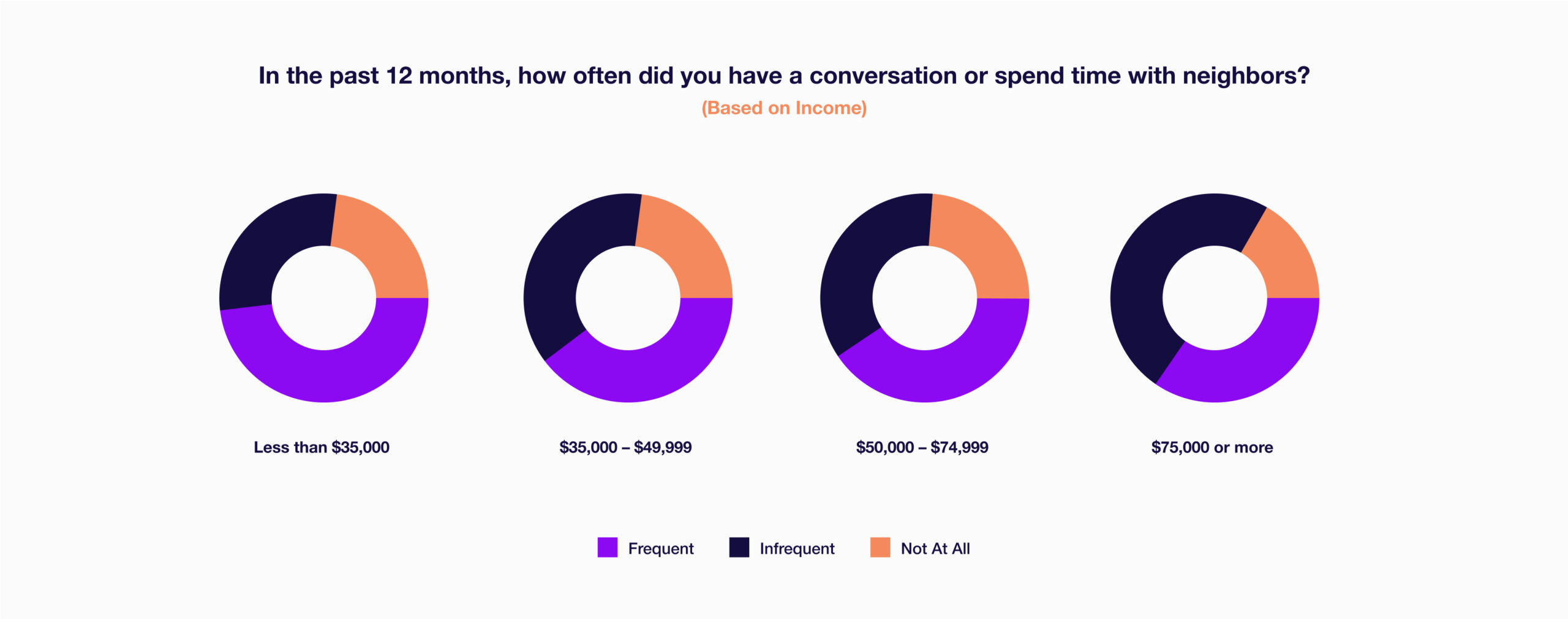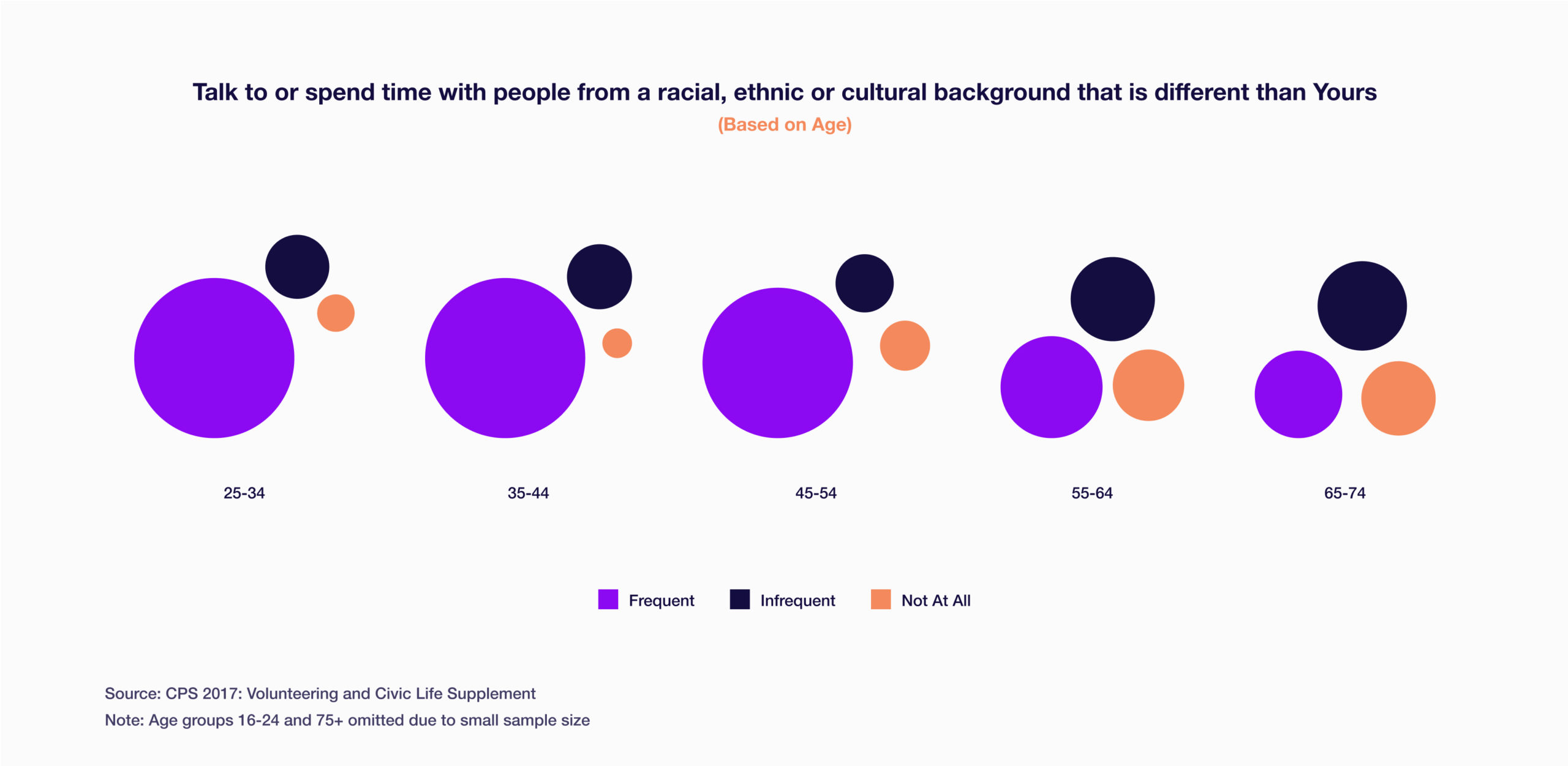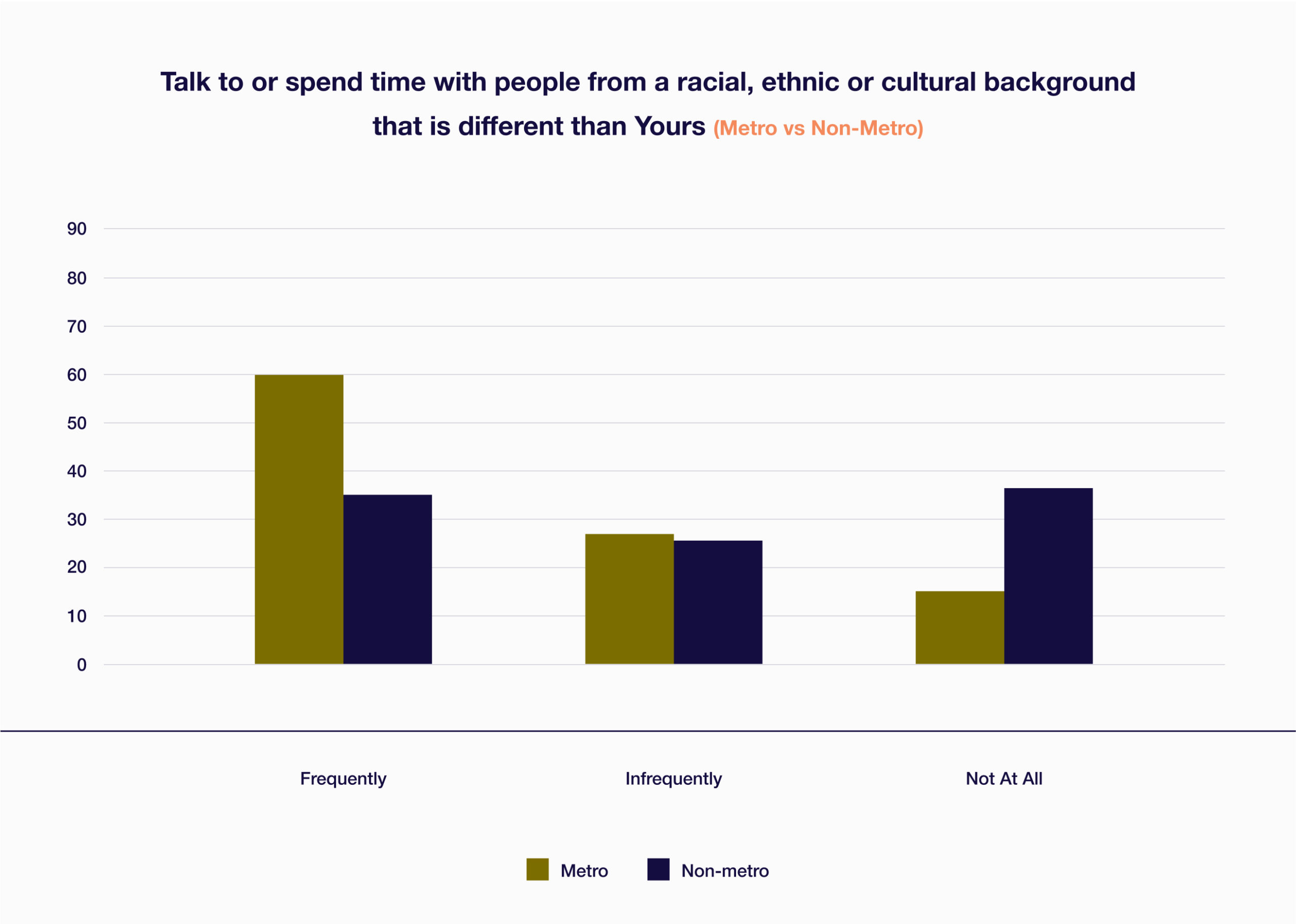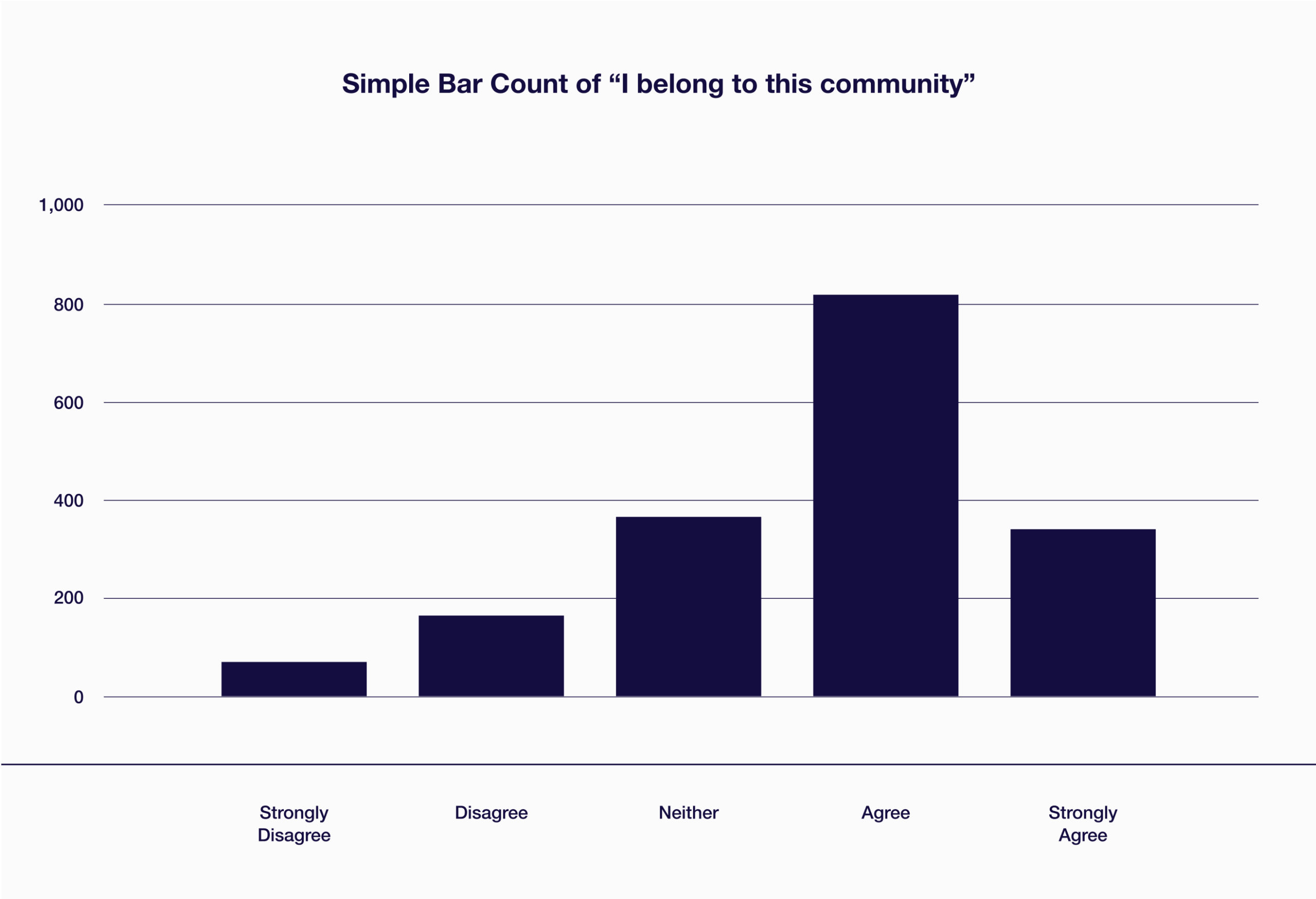Social Connectedness
Social connectedness includes the quality and frequency of personal connections a person has in their personal life as well as the co hesion and trust within the community.
Across a community, it’s the networks of relationships which facilitate collaborations and a sense of social cohesion and mutual support. Residents who are connected to each other are also connected to support networks, to collective problem solving, and to new job and market opportunities. Social connectedness among close friends and family as well as among diverse groups in the community is essential to building a culture of participation that supports effective community action.
Social Connectedness includes the quality and frequency of personal connections a person has in their personal life as well as the cohesion and trust within the community.
Civic health reflects the degree to which individuals participate and are represented in their communities, from local and state governance to interactions with friends or family, and it refers to the way that communities are organized to define and address public problems.
Social connectedness: a cornerstone of community
Join Civic Nebraska and ‘connectors’ from rural and urban Nebraska as we examine the power of social connectedness in civically healthy communities. Watch on CIVIC U.
Data Overview
Social connectedness is important because personal relationships are the life-blood of any community, fulfilling a basic human need and bringing value and meaning to the places we live. For individuals, personal relationships are vital to physical and mental wellness, with recent studies indicating a relationship between higher social cohesion and a reduction in mortality.
Spending time with family, friends, and neighbors
An estimated 88.2% of Nebraskans were estimated to spend time with family and friends at least once a week in 2017, an increase from 2013 which follows the national trend. Spending time with friends and family was fairly consistent among all incomes, levels of educational attainment, and races.
Nebraska also ranked highly among other states for time spent with neighbors, with 40% responding they had a conversation or spent time with neighbors at least once a week. Two notable patterns were that time spent with neighbors was less frequent at younger ages as well as among higher income households.
Spending time with people from different backgrounds
Just over 50% of Nebraskans are estimated to spend time with people from a different background at least once a week. Younger people are far more likely to do so, at around 60% of people in each age group 25-54, compared to 34.3% of people age 65-74.
Nebraskans in metro areas are more likely than rural Nebraskans to spend time with people from a different background. Nearly 60% of Nebraskans in metro areas frequently spent time with people from different backgrounds, as compared to 35.7% of non-metro residents. Over 35% of non-metro residents responded “not at all” to this question.
Rural Poll: Belonging in Rural Communities
Frequency of spending time with people of differing backgrounds may be tied to attitudes towards people of different backgrounds. The 2017 Nebraska Rural Poll indicated that 64% of respondents either ‘agreed’ or ‘strongly agreed’ that they had a sense of belonging in their community. While this is a majority of people, it still indicates work to be done extending that sense of belonging to the remaining third of respondents who may not feel a sense of belonging in their community.
When asked about which groups experienced discrimination in their community, 2017 Rural Poll respondents were most likely to say transgender (32.3% of respondents), gays and lesbians (26.7%), and recent immigrants (23.5%).
Attendees of the civic health summit emphasized that building social connectedness across differing backgrounds is important to building communities where all can thrive and feel at home.
Provide help for family, friends, or neighbors
Providing help or favors for neighbors demonstrates strong social connection and trust. Just over 8% of respondents reported doing favors for neighbors at least once a week, and an estimated 55.8% of Nebraskans reported doing favors for neighbors at least occasionally. 41.7% of respondents reported providing food, housing, money, or help for friends or extended family at least occasionally. Those with higher levels of education and people in metropolitan areas are estimated to provide help to friends and neighbors at a slightly higher rate than others.
